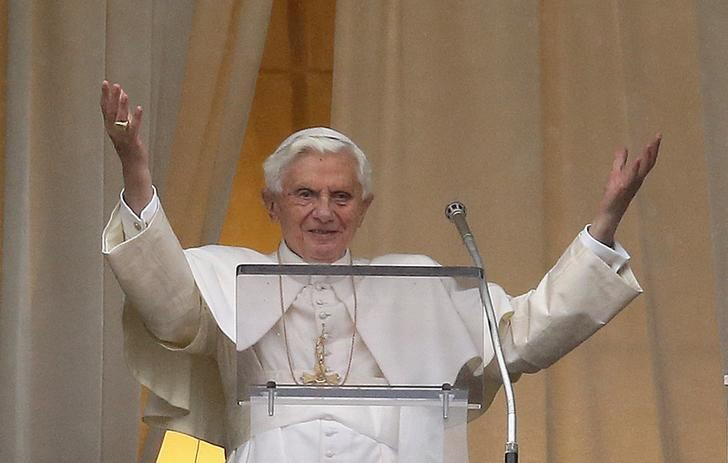Pope Benedict XVI: Not The First Holy Father To Quit

The shock resignation of Pope Benedict XVI represents an event that, while not unprecedented, is something extremely rare in the history of the Catholic Church.
Indeed, it hasn’t happened in nearly six-hundred years.
In 1415, Pope Gregory XII resigned in an effort to put an end to the so-called ‘Western Schism’ – a complex web of affairs in which two others -- the Avignon Pope Benedict XIII and the Antipope John XXIII – also claimed the papacy.
The schism erupted in 1378 one year after Gregory XI was named the Pope in Rome, ending the sixty-seven year reign of the ‘Avignon Papacy’ during which time seven pontiffs ruled from that city in southern France. (Gregory XI was actually named Pope in 1370, as the last of the seven ‘Avignon popes,’ but he did not move to Rome until seven year later).
Following the death of Gregory XI in March 1378, under pressure from Romans to elect a Roman leader of the church, the cardinals named Pope Urban VI who was from Naples. Urban VI quickly fell out of favor, leading to the election of a ‘rival pope,’ Pope Clement VII, in September of that year, who re-established the papacy in Avignon – meaning the Catholic Church now had a pope and an ‘anti-pope,’ thereby dividing the European continent.
After Clement VII and Urban VI died, the schism continued through their respective successors, Pope Boniface IX (who became the ‘Roman’ pope in 1389) and Benedict XIII (the Avignon antipope who was crowned in 1394).
Upon the death of Boniface in 1404, some hopes for a resolution to the schism emerged when the cardinals in Rome offered not to name a new pope immediately if Benedict would resign and give up the Avignon faction’s claims on the papacy. When Benedict and his representatives refused, the Roman Cardinals named Pope Innocent VII as the new pope in Rome. Upon Innocent VII’s death in 1406, Gregory XII was named his successor (while Benedict XIII still ruled in Avignon).
The dispute deteriorated into further complications in 1409 when a church council in Pisa elected yet another anti-pope, Alexander V, who lasted about a year, until he was succeeded by John XXIII.
The issue was not resolved until 1414 when the Council of Constance pressured anti-pope John XXIII to resign and excommunicated the Avignon Pope, Benedict XIII.
Gregory XII agreed to resign the following year, succeeded by Pope Martin V (although some entities refused to recognize him and some antipopes continued to reign).
However, Gregory XII’s resignation was not, strictly speaking, voluntary since it involved various behind-the-scenes machinations and intrigues, complicated by the Avignon and Pisa claimants.
Thus, perhaps the last truly voluntary resignation by a Pope occurred decades earlier, in 1294, when Pope Celestine V quit after serving only five months.
Succeeding Pope Nicholas IV in July 1294, perhaps Celestine V’s most notable achievement was issuing a decree which granted the right of a pope to abdicate (a step he himself took in December of that year).
Explaining his wish to resign, Celestine V said he was motivated by "the desire for humility, for a purer life, for a stainless conscience, the deficiencies of his own physical strength, his ignorance, the perverseness of the people, [and] his longing for the tranquility of his former life".
Celestine would die less than two years later. No subsequent pope has ever taken his name.
Separately, BBC reported that a resignation by the papacy almost occurred during the chaos of World War II. Historians speculate that Pope Pius XII drew up a document indicating that if he were seized by the Nazis, he should be considered as having “resigned” from his post and a successor should be selected.
However, since the Vatican has delayed in releasing Pius XII’s archives, this account remains unconfirmed.
© Copyright IBTimes 2024. All rights reserved.





















